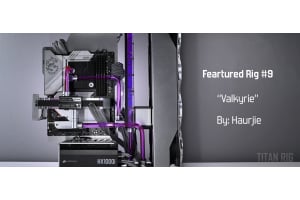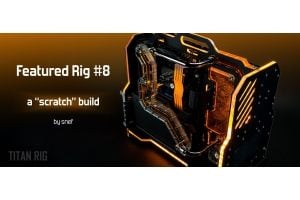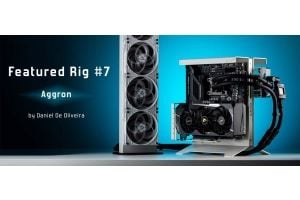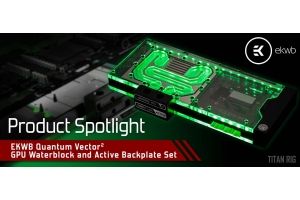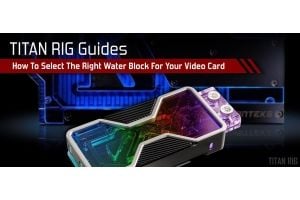2-Day Expedited Shipping Only $14.95 - See Restrictions
PC Modding - Tools of the Trade
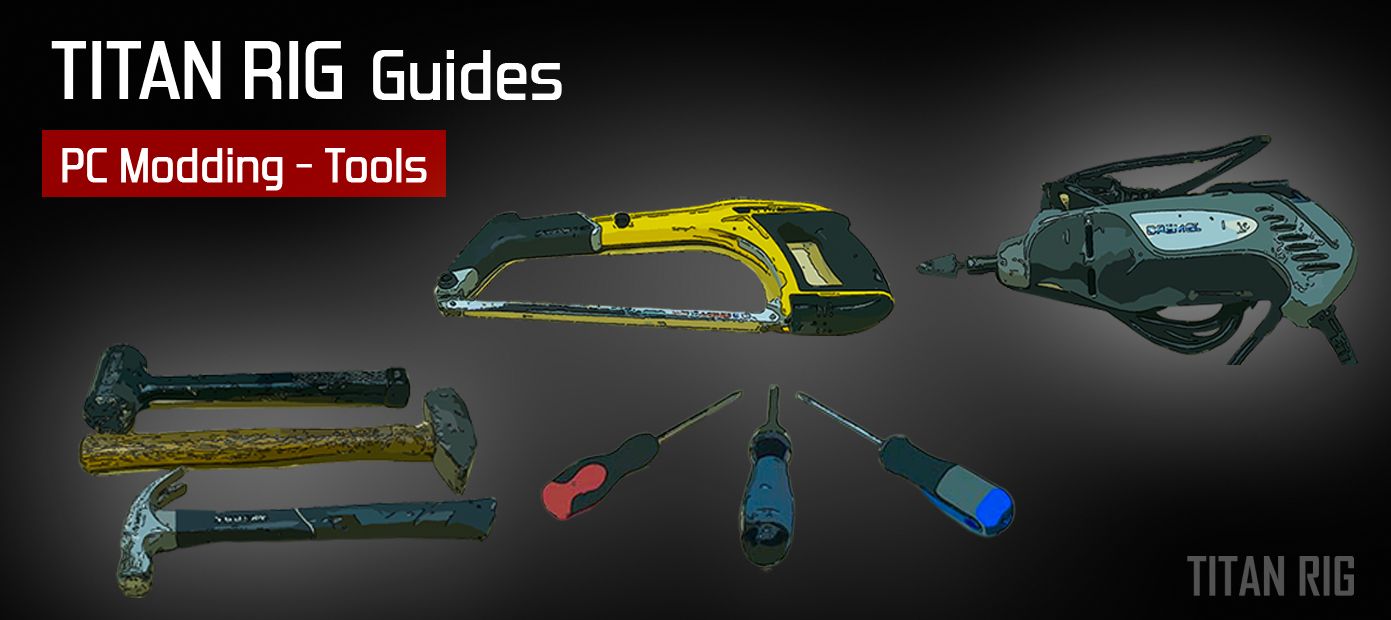
Titan Rig’s Modding Series is back! It’s been a long break, but we’re back with new PC modding content. In our first installment we went over some of the history of PC modding – side panel windows, sleeved cables, vinyl graphics and the evolution of PC lighting from cold cathodes to today’s amazing addressable RGB.
History is fun to read and we can learn a lot from it, but the Modding Series is changing its focus to the now. It’s time to get our hands dirty.
The “About Me” Section
Some background on the author: I’ve always been a maker and tinkerer. I’ve built my small shop up over the years, adding tools when I needed them and (more often) when I just wanted them. I’ve been modding PCs since 2006, when I foolishly dove off into the hobby with what was then a Small Form Factor case – the Ultra Microfly. That mod turned out so badly that I’m still the only person that ever saw it.
In the years since my modding game has improved. I was first-place winner in the Bethesda-themed category in the Modders Inc competition at QuakeCon 2014. I’ve had my work on the cover of CPU magazine and I even had the privilege of having a scratchbuild case on display in the Cooler Master suite at CES in Las Vegas.
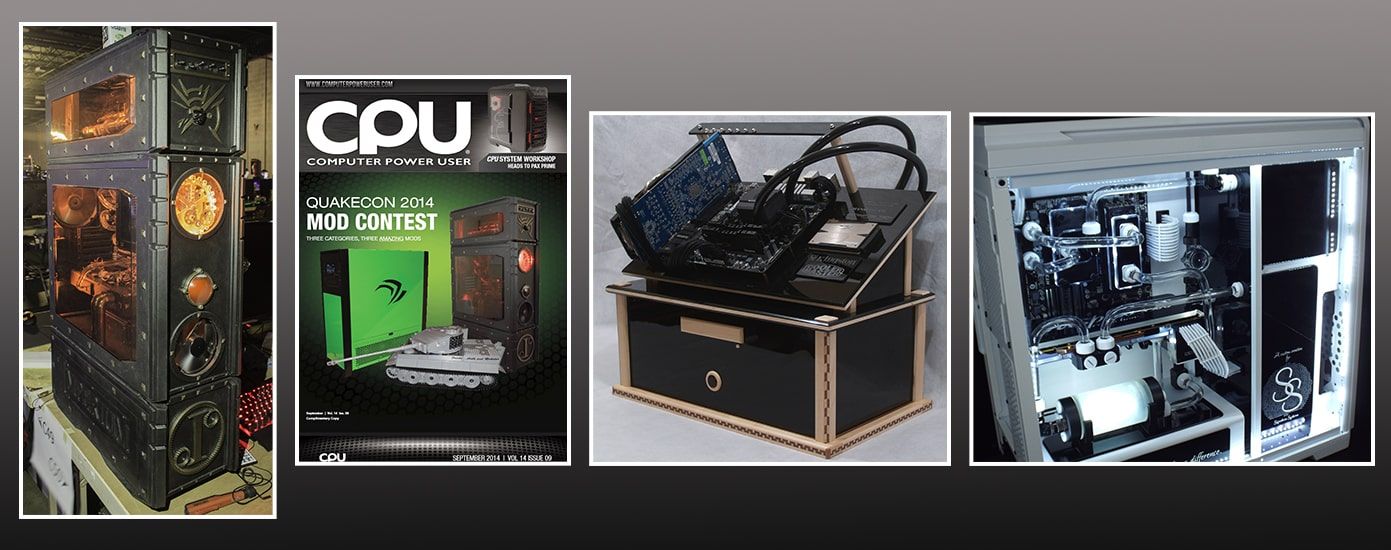
Some of my previous mods...
If you’re interested in getting into PC modding, stick with us. We’re going to show you how to do a lot of stuff.
If you’re already a PC modder, stick around anyway. We’d love to hear your input on our series, and maybe your experience can help some of the new guys.
We’ve got some great content lined, but first things first – the basics.
Modding – Do I Have What It Takes?
“You can make a computer look like that?!”
I’ve run into a few people over the years that wanted to get into PC modding when they saw it was a thing, but didn’t think they had the time or the money or the tools or the workspace to do it.
I can’t help with time or money, but I can tell you that some great mods can be done with basic tools and a fairly small workspace. If you have the itch, don’t let those two things stand in your way.
“PC modding” is a broad term, so I can’t really go into everything you’ll need, but below is a list of the most basic tools that can get you started.
There’s a link along with each tool. These are suggestions based on my own experience - I’ve used them myself and I feel they’re worth the asking price but consider these a starting point. Do your research and buy the tools you want and need.
Note: All of the images below are of my tools, taken in my shop. There may have been some post processing involved.
The Basics
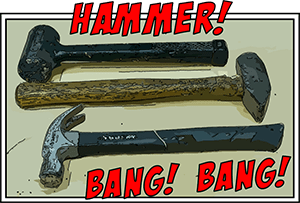
These come in a huge range of sizes and shapes. Your basic claw hammer is a good start. Remember – a hammer can be a craftsman’s tool, no matter how big it is.
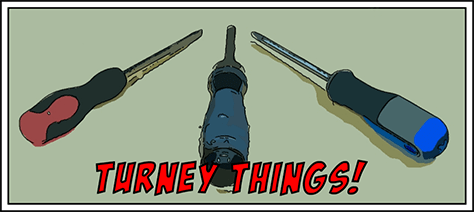
Self-explanatory, but if you only have one make it’s one of the types that hold different bits. Screwdriver bits are cheap and will give you a universal fit.
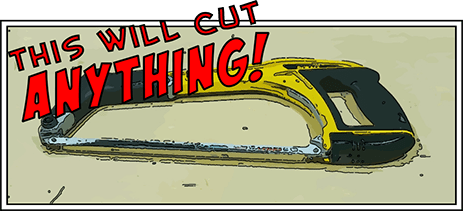
This is a surprisingly universal tool. With the right blade you can cut almost anything. From notching panels to cutting screws to a specific custom length, the hacksaw is your friend.
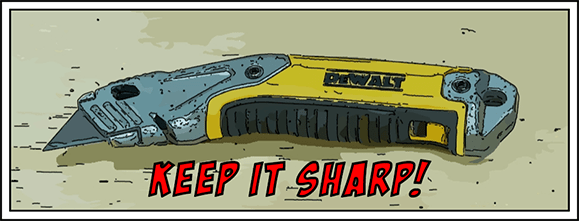
All around tool, good for cutting foam, tape, string, wire ties, Velcro, and anything else that gets in its way. Serves as a wire stripper and scraper in a pinch also. Added features like onboard blade storage are a plus.
Protip: Make sure the knife you get feels good in your hand. The better your grip the safer it is.
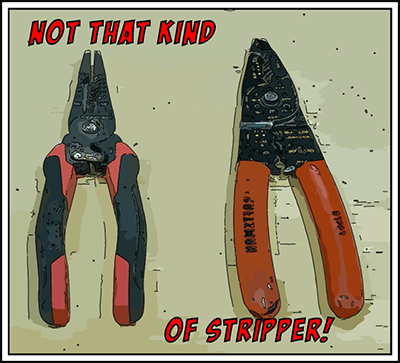
Many of these also come with thread gauges, screw cutters and crimpers. While the first two uses are fine, the crimping function can be... finicky. If you can afford it at all, buy dedicated wire crimpers. They’re pretty much always better and less frustrating to use.
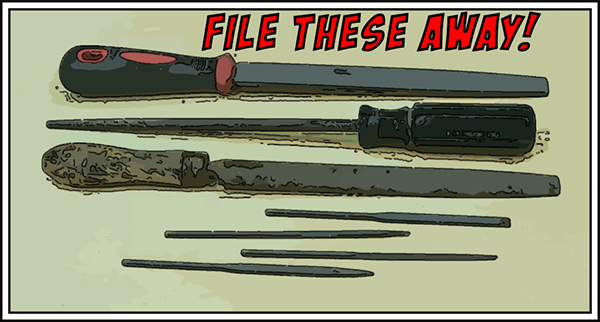
Hacksaws and Dremels are great for cutting metal but not so great at making a smooth edge. Files can smooth and straighten a cut edge in short order. I find myself using my mini files more often than my full-size, but they both have their place. Round-faced files are a plus for many applications.
There are a lot of different kinds of files, and they differ in ways other than their shape. For more information on files than you ever thought you’d need, check here.
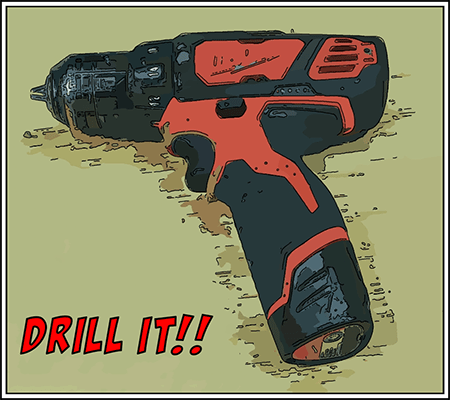
This is the only power tool on the “most basic” list, and I only include it for its extreme utility. A lot of PC cases are assembled with rivets, and you’ll want a drill to get those out.
Drills are even more useful as powered drivers than they are as drills. Put a screwdriver bit holder where the drill bit goes and you can turn screws at ridiculous speeds.
Cordless drills are very portable but batteries only hold a charge for so long. Corded drills are typically more powerful and never run out of juice. Either can be had very affordably and even the cheapest will be an excellent addition to your tool collection.
Only What You Need
You don’t have to have all of these to get started – modding is as subjective as it gets, and you’ll be able to add tools as you need them.
A note on tool quality: Your tools don’t have to be expensive. They can be, and if you shop carefully many more expensive tools will last you a lifetime, but it’s not necessary. Even the most bargain-basement tools have their purpose.
As far as handheld tools go, my personal collection is mostly mid-range in price, with a couple of high-end pieces that I used to use daily and several examples of the super cheap.
One advantage of super-cheap tools is the ability to modify them to a specific task with little expense. I have a few wrenches that I’ve bought and cut off at a specific length for a specific job.
The Next Level
While they’re not necessary, a few power tools and more advanced (and expensive) hand tools can save you a lot of time if you can afford them.

This is a name brand but it’s universally understood when mentioned. With the vast array of bits, cutters, sanders and accessories available for it, the rotary tool is a toolbox all its own.
Buying these as a kit is almost always cheaper than buying the tool and then buying all the accessories later.
Here again – brand name isn’t necessary. I own a Dremel and a cheap unbranded corded rotary tool, and both serve the function.
Belt sanders, palm sanders, detail sanders, random-orbit sanders – they all save you from having to sand by hand, and that’s a good thing. Which one you get depends on the job you need to do.
We’ll go over sanding in another installment. Yay!
Surprisingly useful tool – get one with a power switch if possible and go for the highest wattage you can afford.

For checking continuity and voltage in electrical work. The kind of work we’re doing in PC modding doesn’t need the accuracy or sensitivity of a Fluke. Mine are all super cheap and serve the purpose well.
Analog vs Digital: Digital meters are easier to read, but an analog meter’s voltage and current functions will work even without batteries.

More advanced electrical work can require this. Standard sleeving and custom power wires won’t, but it can still be used.
You don’t need an advanced soldering station. Try to find an iron with adjustable power and a temperature display, and make the wattage as high as you can afford.
Cordless irons are great for heavier work – like on a train for instance – but the butane-powered heat is difficult to control and they have an exhaust hole under the soldering tip that shoots out unbelievably hot air, making them not only difficult to use in smaller spaces but dangerous.
Swiss Army knife of saws, there are multiple types of blades available for the jig saw to cut metal, plastic and wood.

Essential for bending hard tubing, also useful for removing factory stickers and paint as well as shrinking heat shrink in electrical work.
As with most heat-related tools, buy the highest-wattage unit you can afford. Bonus if you can find one that will stand vertically on its own.
Anything from simple tube inserts to full-on kits with mounted mandrels and measuring tools, these are extremely helpful for bending hard tubing for liquid cooling. Also included are pipe benders typically used for copper tube.
Used to bend sheet metal in straight lines, they come in a wide range of sizes. These are really only justified if you plan on folding a lot of metal. One or two jobs can be done on a workbench easily enough.
Moving On Up
If you’re like me at all, making stuff is a thing even outside PCs. The tools below are extremely handy and save a lot of time but may be prohibitively expensive for some.
The workhorse of the shop. Mine is a 10-inch model from Rigid and it’s amazing – for the price. Table saws have a HUGE range of price and size. Smaller jobsite saws (read: on wheels) and be had for under $150 US, while the giants can cost $10K or more.
With the right blade, a table saw can cut a lot of different materials, from wood to aluminum to steel.
Tip: Running a smaller blade on a 10-inch table saw not only improves torque applied to the material but results in less waste as the blades are much thinner. Blade deflection can be an issue.
I didn’t mention a handheld router in the above section because while it’s a handy tool its use in PC modding is pretty limited. If you flip it over and mount it in a table it becomes a MUCH more useful addition.
Drilling straight holes is often important, and while drill guides will get the job done, a drill press will always be faster and more accurate. If you ever have to drill dozens or hundreds of holes, you’ll appreciate the utility of this tool even more.
Drilling is only one use for the drill press. Sanding drums, wire wheels, grindings stones – all of those and more fit into the chuck on a drill press. Consider it a stationary vertical rotary tool.
Honestly, this is one of those tools that I didn’t know how badly I needed until I bought one.

While it does require the addition of an air compressor to your shop, nothing’s faster for stripping paint and rust, and they can do amazing etching work if your material is properly masked. You don’t have to spring for the enclosed cabinet model like I have either. If you can work outside a handheld unit is very affordable – just know that the media you use (sand, glass beads, etc) is lost in one use this way.

High Volume Low Pressure - this tool also requires an air compressor to work. With some practice you can get excellent and fast paint results with one of these – just have an area ready as overspray can be a problem.

Even if you’re not artistic at all, an airbrush will serve the same function as the HVLP paint gun for smaller jobs, like PC cases. Airbrush paint is some of the best paint I’ve used also – expensive but it goes a long way.
This tool also requires a compressor, but a much less expensive, smaller and quieter version.
The Top of the Line?
I’ve managed to add a couple of incredibly useful tools to my shop in the last few years. These are industrial computer-controlled machines that cost a few thousand dollars, but they can do things that nothing else can.
CNC Router
Even the smaller consumer-level versions are amazing tools, capable of cutting everything from wood to plastic to aluminum copper and brass. Precision is the name of the game with these tools, and the nature of the cut you make is limited only by the shapes of the bits you have on hand.
The learning curve for using one of these machines effectively and efficiently can be steep. Not only is there CAD and CAM software to learn, you’ll also need to learn about happy things like bit geometry, workholding, flute count, feed rate, offsets, toolpaths, and chipload.
The more you know!
CO2 Laser Cutter
A perfect complement to the CNC router. Not as versatile as it can’t cut metals or offer true three-dimensional work, it more than makes up for it with speed and ease of use.
No dust, no chips, no workholding, no ear-splitting noise – just clean beautiful cuts and engravings made by an invisible beam of energy.
Be Safe!
I can’t end this list without a few basic safety rules. In general, the tools listed above get more dangerous as you go down the list. Any of them can injure you and some can kill you – some more easily than others.
• Always utilize any guards and/or shields that a tool is equipped with. Blade guards and viewing shields are there for a reason. You will see some of my tools without guards in the course of this series – this is for clarity in the photo only
• Safety glasses are a must. Your eyeballs are an unfortunate combination of soft, squishy and extremely important in day-to-day life. Protect them! While most prescription eyeglasses are made of polycarbonate - the same stuff in safety glasses - they don’t offer the same degree of protection since they’re rarely as large or have side coverage.
• Ear protection – I had to invest a lot of money in hearing aids to be able to have a coherent conversation due to years of noise damage. Don’t be like me.
• Gloves – Much harder to damage than your skin.
• Loose clothing/jewelry with power tools. Bad plan. Keep it tight and close.
• Repeat after me: Machines. Don’t. Care. They’re amazing, powerful, dangerous tools that will cut/drill/burn/sand/break anything that enters their zone of influence, whether it’s a piece of wood or your head. The tools we use should be treated like they want to hurt us. Let’s keep the blood in your body.
I’ll just leave a few simple reminders here….

You Got This
PC modding requires a set of skills, like anything else. You’ll pick up any you don’t already have along the way. Tools like the ones listed here will enable us to do it.
Stay tuned for the next entry in the Modding Series, where we’ll go over some of the simpler electrical mods we can make and how best to make them.











